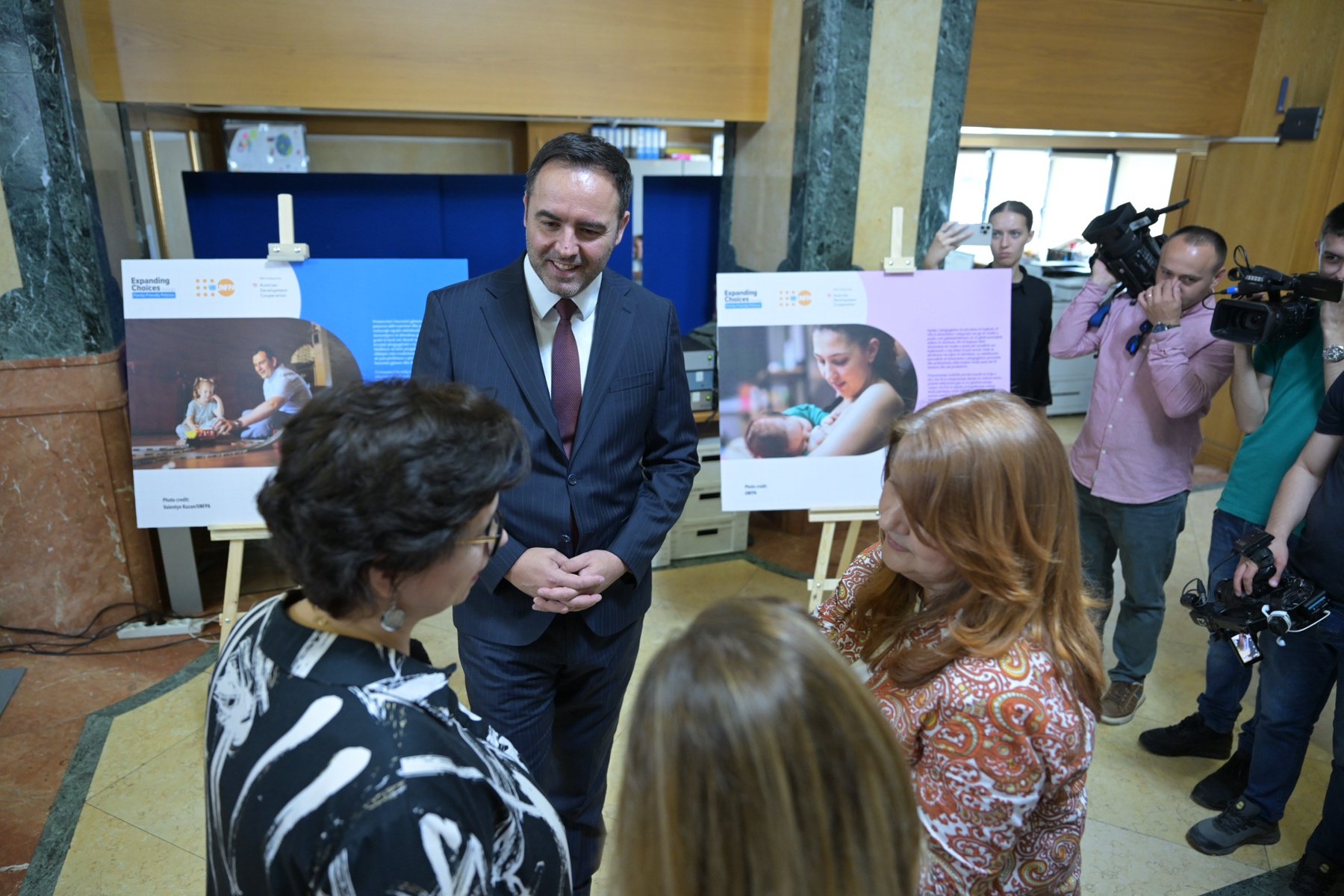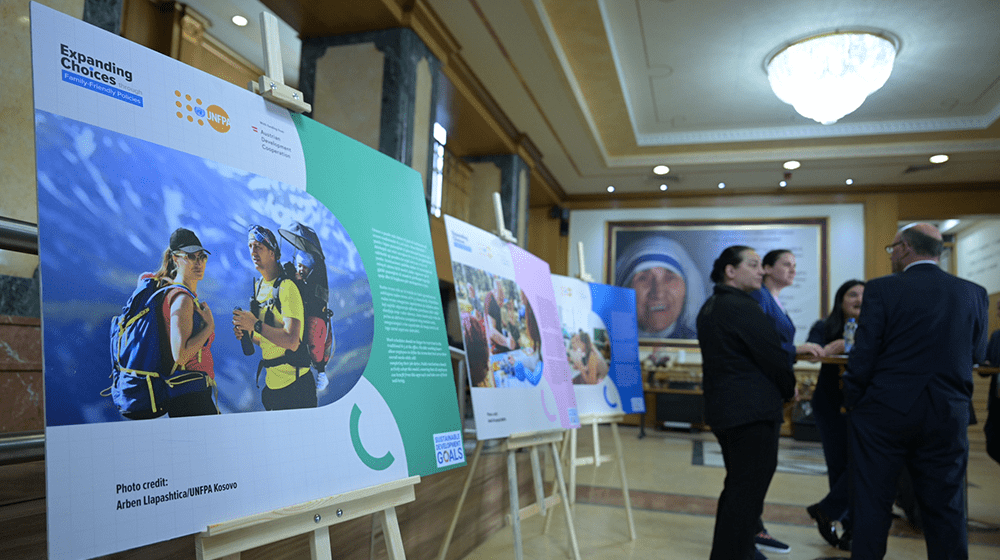Pristina, Kosovo – May 29, 2024: UNFPA, in partnership with the Council for Sustainable Development and with support from the Austrian Development Agency, proudly launched the second phase of the project "Expanding Choices: Gender-Responsive Family Policies for the Private Sector in Kosovo." This initiative aims to expand choices for women and families, promoting a balanced work-life dynamic.
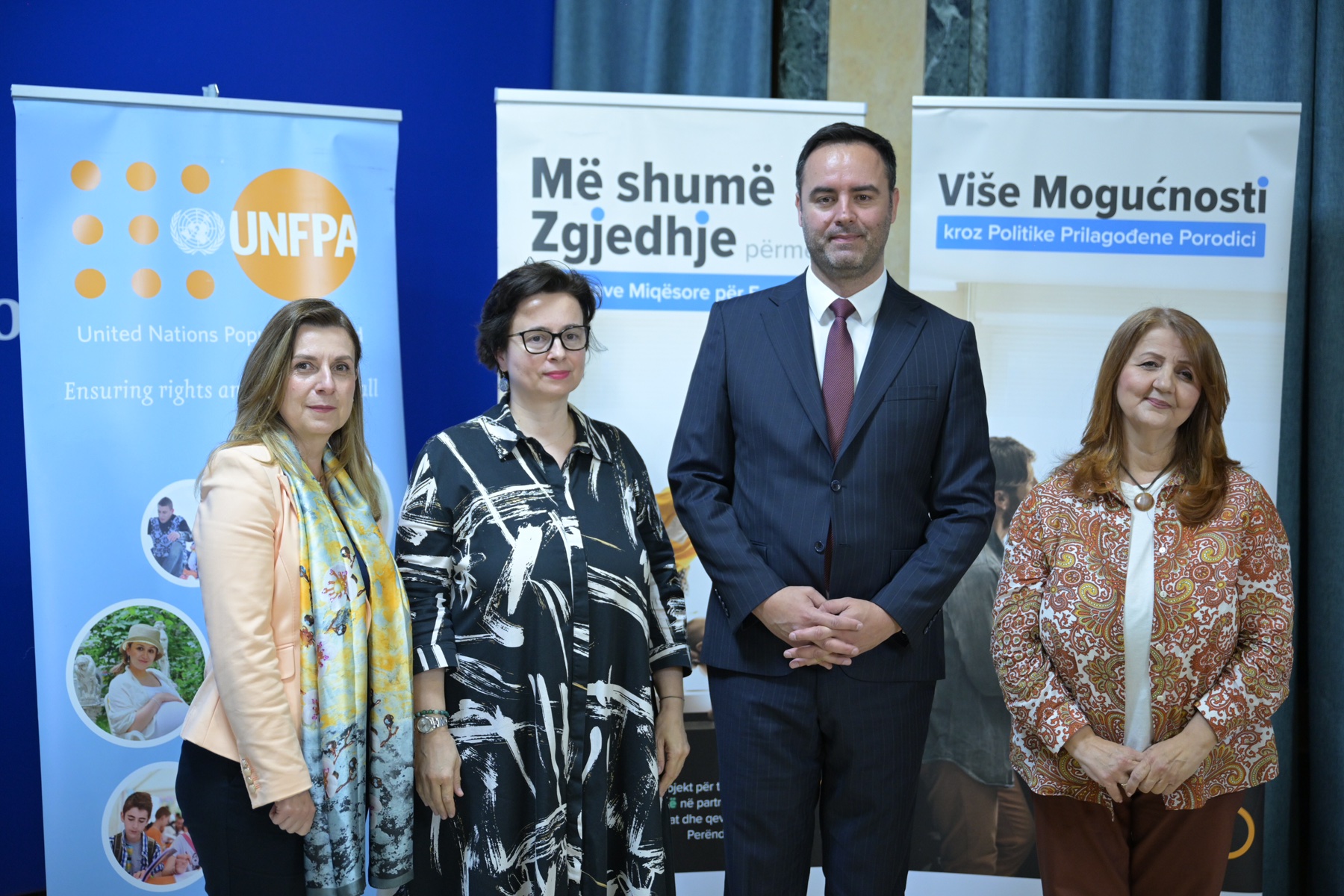
The project aligns with the European Union's directive on work-life balance, focusing on family-friendly policies that facilitate women's participation in the labor market by providing favorable conditions for both employment and childcare.
Speaking at the launch event, the Speaker of the Assembly of Kosovo, Glauk Konjufca, expressed optimism about the project's positive impact, highlighting its crucial role in fostering a more equal and inclusive society. He underscored that this phase promotes the importance of gender-responsive family policies in the private sector and reflects a commitment to creating workplaces that accommodate diverse employee needs while promoting gender equality.
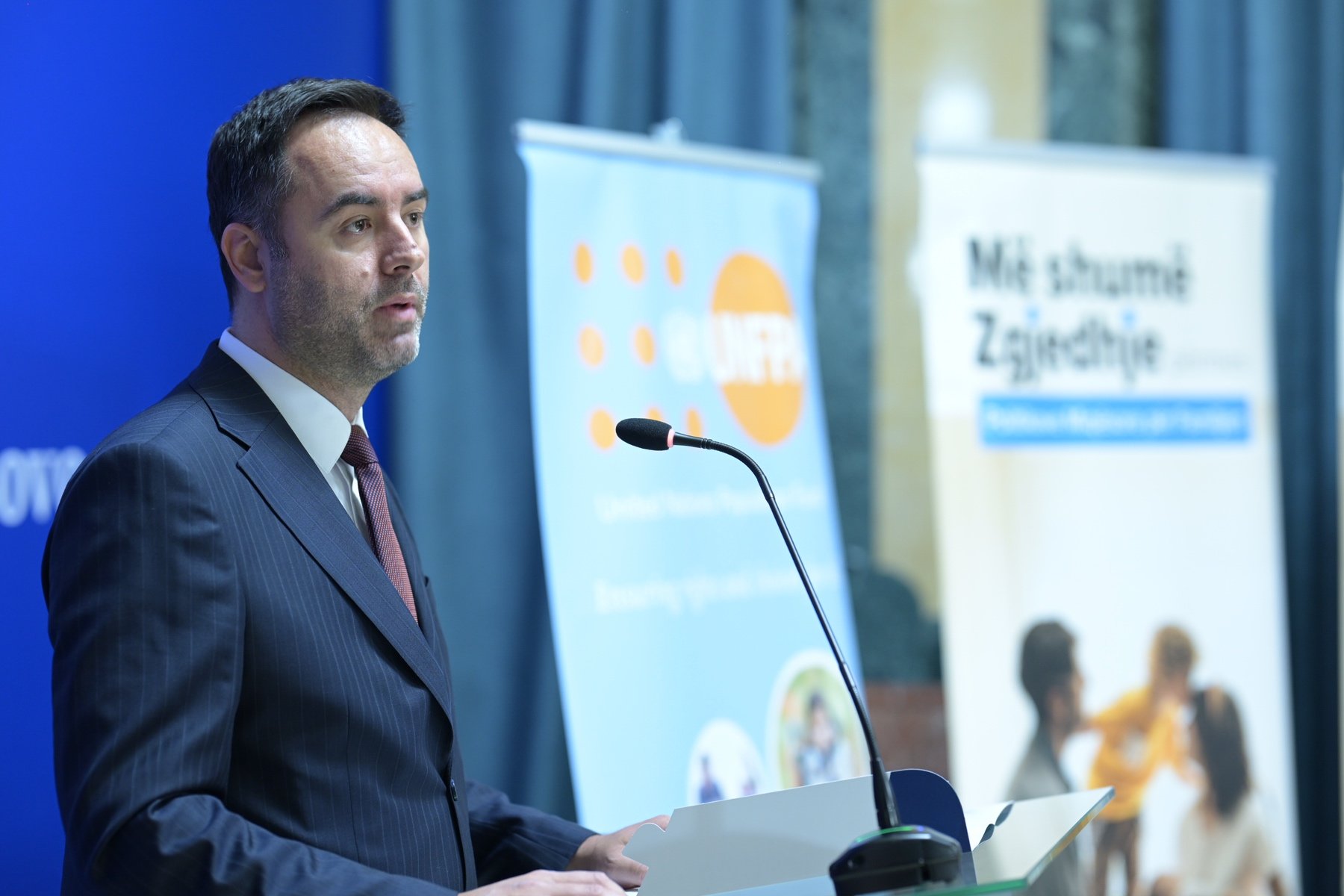
“Our legal framework has seen improvements regarding gender-responsive family policies in line with EU standards. Therefore, it is our responsibility as state institutions, civil society, and businesses to raise awareness about these policies and their impact on the social and economic parameters of the state, demonstrating our commitment to their implementation,” emphasized Speaker Konjufca.
This project will serve as a catalyst for employers to implement supportive work policies, creating a mutually beneficial environment.
Fatmire Mulhaxha-Kollçaku, Chairwoman of the Council for Sustainable Development, praised the longstanding partnership with UNFPA. She noted that the project and similar initiatives encourage public discourse and promote transformative policies. Measures such as child allowances up to age 16, six months of maternity pay for unemployed mothers, scholarships for girls in fields like Information Technology, social housing plans, and the expansion of public childcare centers were highlighted as key steps toward promoting equality.
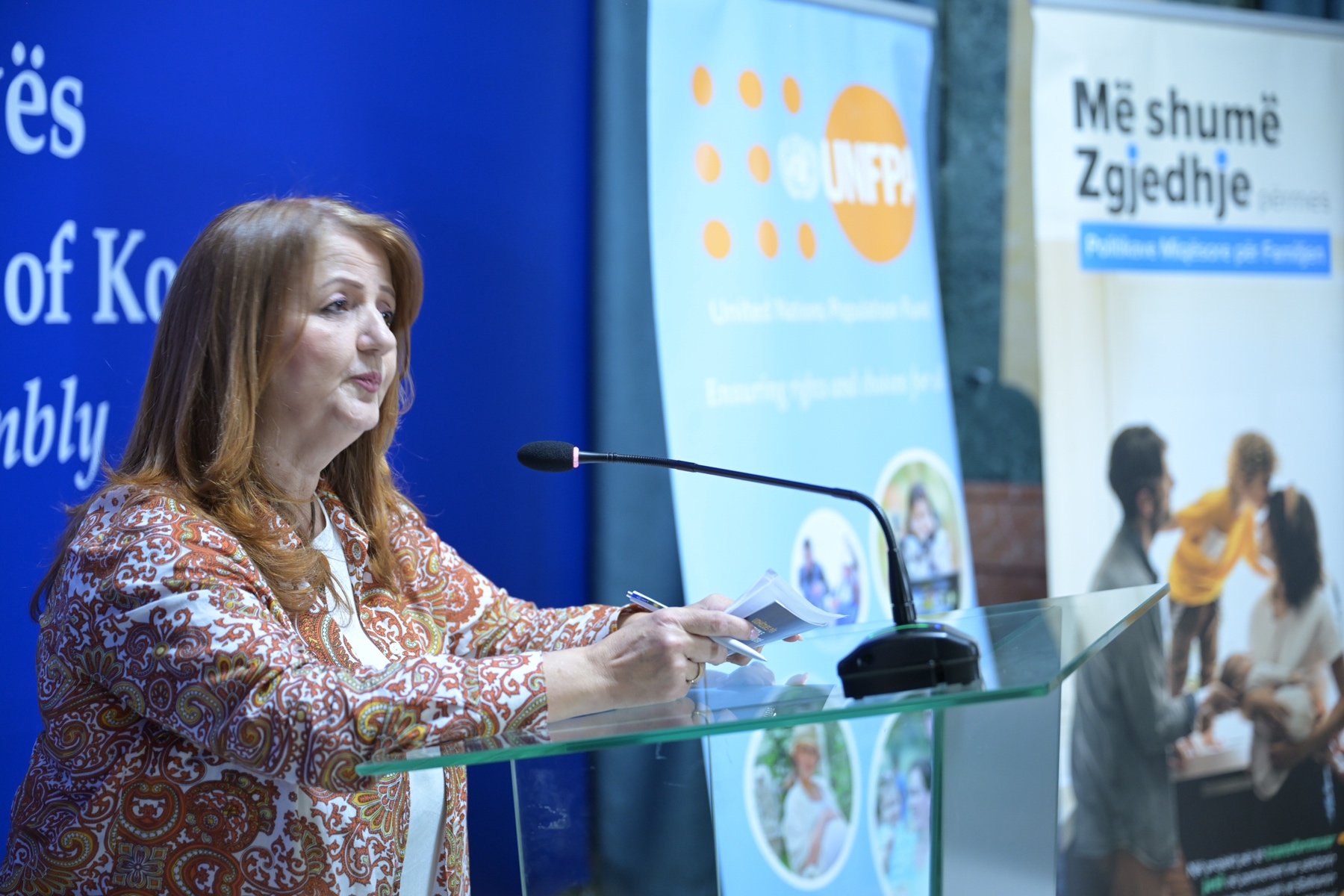
Kosovo is committed to aligning its legislation with the European Union's standards, as outlined in the Stabilization and Association Agreement. Mulhaxha-Kollçaku emphasized that gender-responsive family policies are crucial for empowering not only women but also children, men, families, and society as a whole. Properly promoted and implemented policies by the government and private sector promise long-term benefits.
Sandra Horina, Head of the Austrian Development Cooperation Office in Kosovo, expressed gratitude to all program participants. She described this phase as transformative for Kosovo, where many women, particularly in rural areas, face unfavorable conditions that hinder their career prospects.
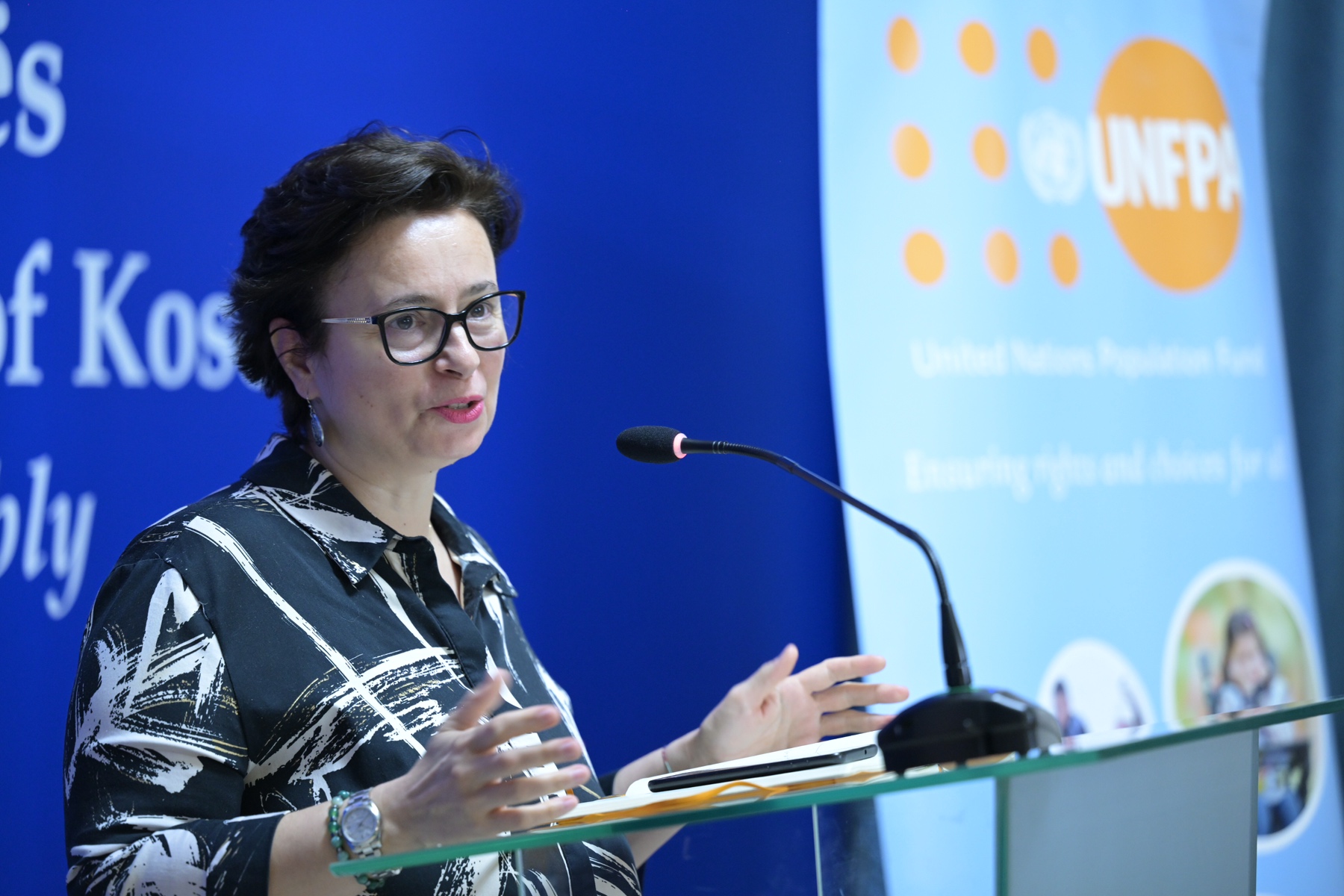
This second phase of the project will focus on integrating the work-life balance directive into Kosovo's Labor Law.
Visare Mujko Nimani, Head of the UNFPA Office in Kosovo, praised the collective commitment to fostering an environment where every individual, regardless of gender, can thrive both at home and in the workplace.
“Gender-responsive family policies are essential for creating a more equal and sustainable society. Encouraging men to take on caregiving roles eases the burden on women and fosters a more inclusive and supportive environment. By addressing harmful social norms and promoting engaged fatherhood, we can uproot stereotypes that limit men as sole breadwinners and women as unpaid caregivers,” stated Mujko Nimani. She added that this project contributes significantly to well-being, respect for rights, gender equality, and economic growth.
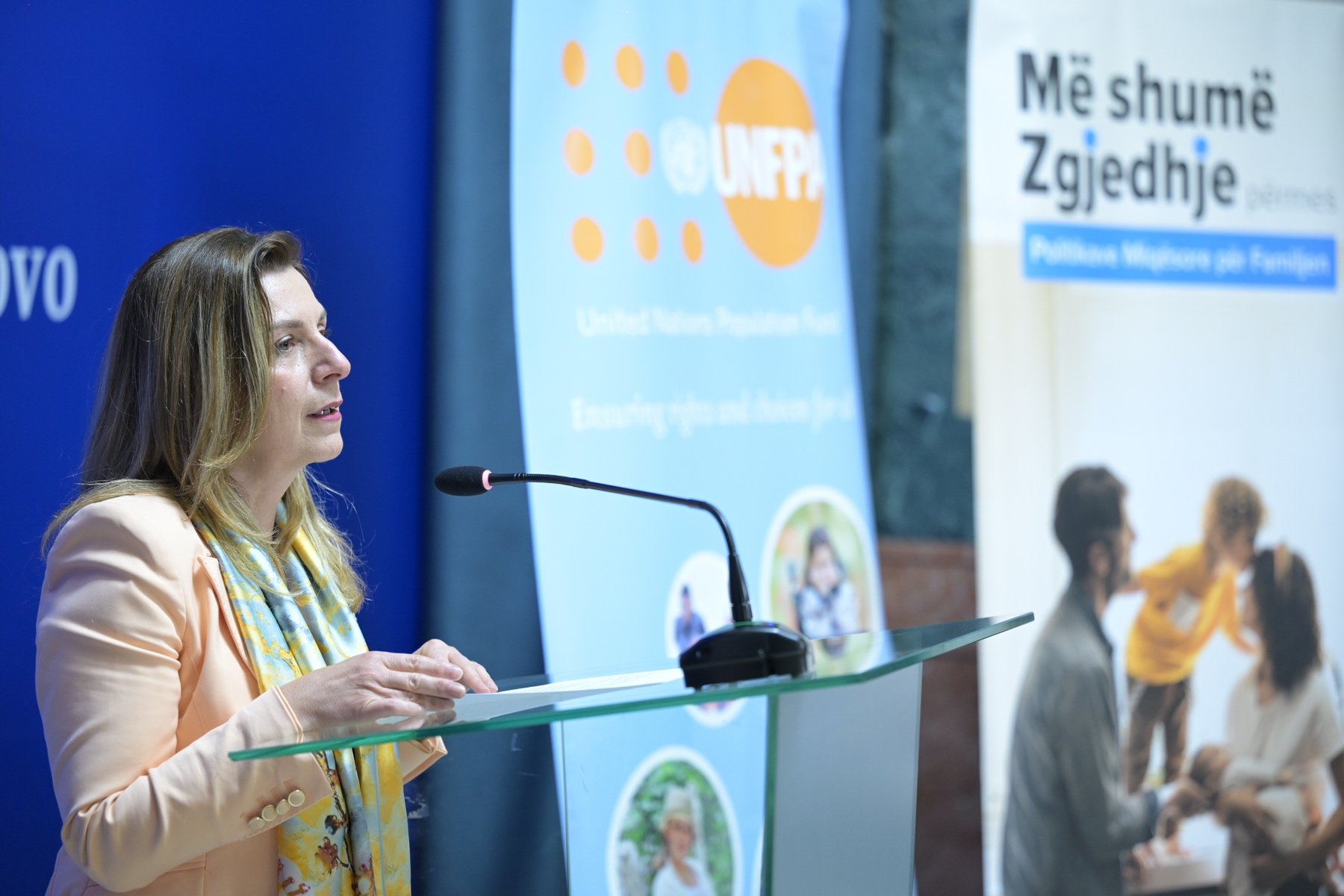
Following the launch ceremony, a photo exhibition supported by UNFPA was opened at the Assembly premises, celebrating the second phase of the "Expanding Choices" project.
